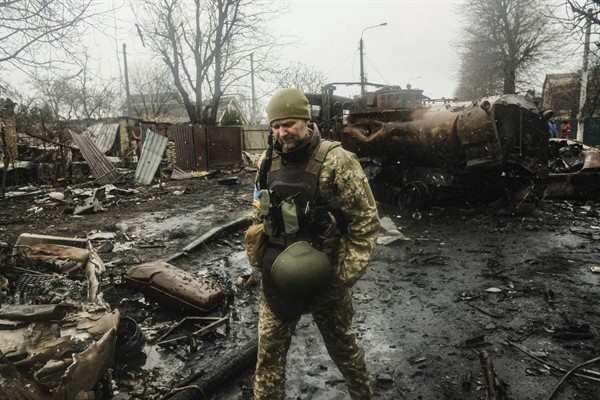Last week, United Nations human rights chief Michelle Bachelet warned that Russia may have committed war crimes in Ukraine, pointing to credible evidence that it had used cluster munitions in populated areas as well as other indiscriminate attacks. Her warning took on even more resonance over the weekend, when reports emerged of Russian forces having committed summary executions of civilian men in the Ukrainian town of Bucha.
Bachelet’s denunciation, combined with the outpouring of outrage over Bucha, is likely to renew enthusiasm for a future war crimes tribunal to hold Russia accountable. But apart from inspiring dreams of a far-off and for now unlikely formal criminal prosecution, the sort of documentation and public accountability Bachelet is engaging in has an even more important role to play in immediate conflict mitigation and, potentially, resolution.
In her report to the U.N. Human Rights Council, Bachelet said that just over 3,000 civilian casualties had already been confirmed in Ukraine in the past five weeks. The real numbers are likely much higher, she warned. Local estimates suggest as many as 5,000 civilians were killed in Mariupol alone in the past month, but these could not be confirmed by U.N. monitors due to lack of access to the besieged city.

